In Official Dispatch 5333/BXD-QLN sent to the Government Office to report on the recent real estate price situation, the Ministry of Construction proposed to tax the case of owning many houses and lands. This proposal was made in the context of housing and real estate prices in urban areas continuously increasing sharply in 2024, especially in Hanoi.
Block "holding land and waiting for the right time"
To overcome the situation of increasing housing and real estate prices, the Ministry of Construction proposed to study and propose to complete regulations related to land use rights auctions, ensuring compliance with practical situations, in the direction of increasing deposits, determining the starting price of land for auction close to the actual situation of the area. At the same time, shorten the time to pay the winning bid, limit the number of people participating in the auction for speculative purposes.
The Ministry of Construction also recommended that the Ministry of Finance study, propose, and advise on tax policies for second houses and land or abandoned or unused houses and land; study and have a tax policy for cases of owning and using many houses and lands to limit speculation and buying and selling in a short period of time to make a profit.
The proposal to tax second or more properties or people who own multiple houses and lands is not a new idea. Previously, from 2009 to 2018, the Ministry of Finance mentioned this content when discussing the draft Law on Property Tax. In August 2023, voters in Ho Chi Minh City also continued to propose taxing second homes and imposing higher taxes on vacant houses and lands that do not generate land value.
In addition, when discussing the Land Law (amended), the National Assembly Standing Committee also requested the Government to urgently propose regulations on higher tax rates for people using large areas of land, many houses, and land speculation.
Recently, the Vietnam Association of Realtors (VARS) also proposed a real estate tax policy applicable to two groups: buyers of second homes or more, and owners who abandon projects. The tax rate will gradually increase for transactions where the seller has a short ownership period.
VARS said that in recent years, the concepts of "abandoned houses", "abandoned villas", "abandoned urban areas" have become increasingly familiar and popular. This situation can be easily encountered anywhere. This shows an ironic paradox, between "abandoned land and houses" on one side and the scene of people struggling, working all their lives but still not sure if they can buy a piece of land or a house.
VARS assesses that this situation not only wastes land resources but also creates social injustice, when the majority of the housing supply - which is increasingly scarce - continues to "fall" into the hands of those with financial surplus.
They own a few, even dozens, hundreds of properties but leave them abandoned, "holding the land and waiting for the right time", leading to an increase in real estate prices, making people's access to housing increasingly limited.
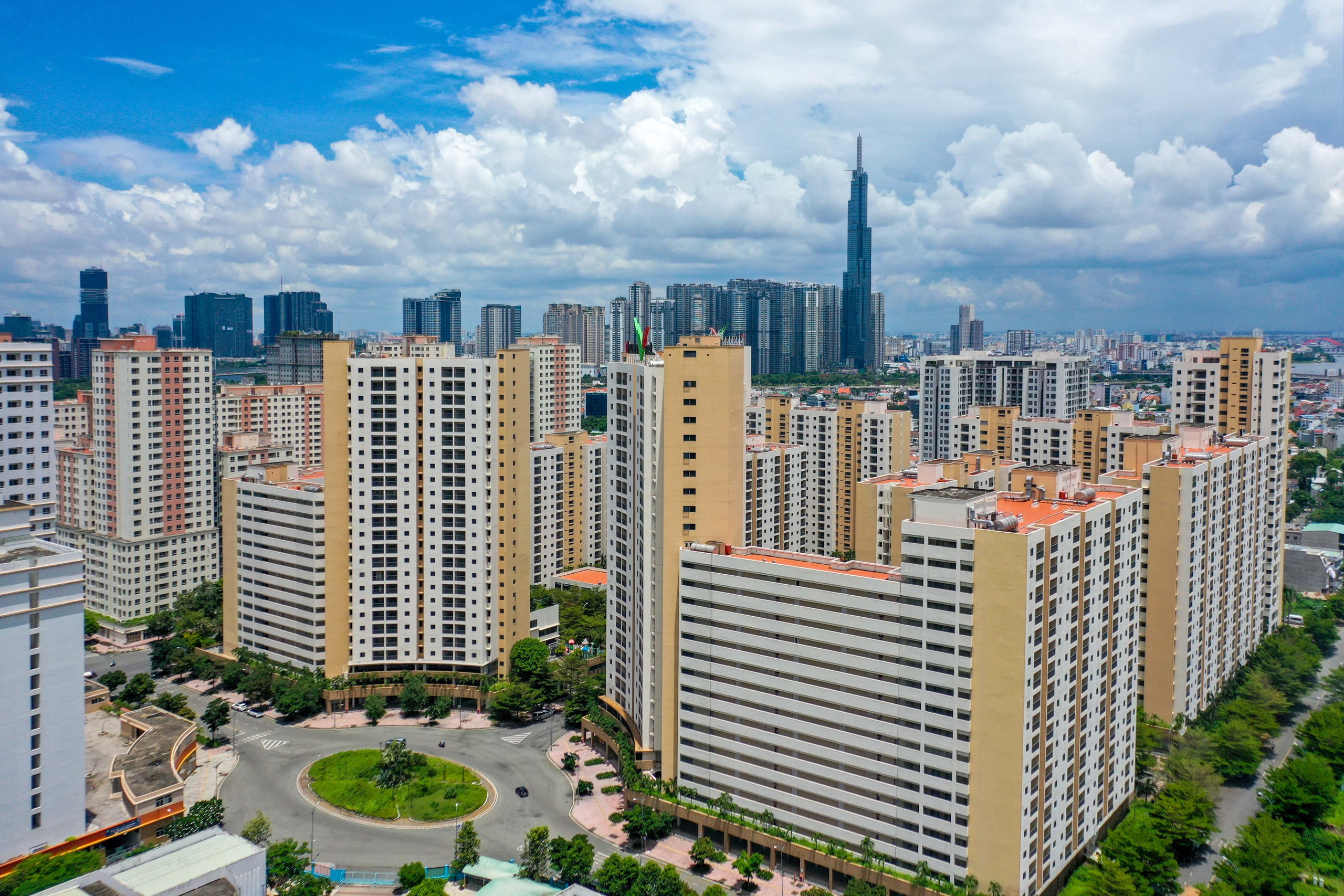
The proposal to tax the use of multiple properties is expected to prevent speculation and "inflating" real estate prices for profit. Photo: HOANG TRIEU
How to tax?
What the public is concerned about is whether this tax proposal will be effectively implemented, contributing to preventing speculation and combating virtual price increases.
According to Mr. Nguyen Van Dinh, Chairman of VARS, the current legal system does not have sanctions to control and prevent land speculation and hoarding to push up prices; while the uncontrolled buying and selling and transferring of land is the main cause of "land fever" in many localities.
Speculators buy land and leave it abandoned, waiting for prices to increase or creating artificial scarcity, which is common, with the aim of "pushing up prices to make a profit". "Researching real estate tax is urgent to regulate the market. Don't ignore this policy just because it is difficult to enact," said Mr. Dinh.
According to VARS, along with promoting the supply of social housing in urban areas, the state needs to have a regulatory mechanism to reduce speculative factors, helping the real estate market to be balanced in the long term.
Effective and transparent real estate taxation, targeting those who accumulate and speculate instead of those who buy real estate for living purposes or for production and business purposes, will both help increase budget revenue and regulate the real estate market. This is also a common trend in the world.
In terms of methodology, VARS believes that the tax should be applied to second homes and above. For example, in Singapore, any Singaporean who buys a home must pay a fee of 20% of the property value for a second home, 30% for a third home... In addition, the tax rate can be gradually increased for real estate transactions where the seller has a short holding period.
In Singapore, if you sell in the first year, you will have to pay 6% tax on the property value, if you sell in the second year, you will have to pay 8% tax, in the third year it will be 4%, and after the fourth year, you will not be subject to this tax or fee.
In Korea, abandoned land or land under land reclamation for more than 2 years is taxed at 5%, 5 years is taxed at 8%, 7 years is taxed at 9%, and more than 10 years is taxed at 10%. In the US, abandoned land is taxed at 3%...
Mr. Nguyen Van Dinh said that such regulations will limit or eliminate people's motivation to speculate, curbing the increase in real estate prices, because along with interest costs and other opportunity costs, owning speculative real estate becomes riskier.
In case people still want to speculate after taxes are imposed, the budget will collect taxes to serve public investment, build schools, hospitals, traffic works...
Building a transparent real estate market
Regarding the proposal of the Ministry of Construction, at the regular press conference for the third quarter of 2024 held by the Ministry of Finance on the morning of September 27, Deputy Minister Nguyen Duc Chi said that the Ministry of Finance completely agreed with this proposal of the Ministry of Construction.
However, according to Mr. Nguyen Duc Chi, the policies need to be comprehensive and holistic, in order to build a real estate market that is increasingly transparent and develops more sustainably.
Lawyer Nguyen Van Dinh , real estate legal expert:
Synchronized execution
Taxing houses and land is a mandatory solution because this has been clearly institutionalized in Resolution 18-NQ/TW of 2022 of the Central Executive Committee on continuing to innovate and perfect institutions and policies, improving the effectiveness and efficiency of land management and use. The Resolution clearly states: "Resolve the situation of wasteful land use, leaving land fallow, polluted, and degraded", "Prescribe higher tax rates for people using large areas of land, many houses, speculating on land, slow land use, and leaving land fallow".
Taxation of houses and land must be implemented synchronously and fairly among localities and a database is needed to ensure correct taxation and promote the effectiveness of tax policies.
Currently, the Prime Minister has approved Project 06 to develop applications for population data, identification and electronic authentication to serve digital transformation. The new laws on Land, Housing, and Real Estate Business also mention the construction of a national database on land, housing, real estate market, etc. This is important data to implement the Law on Real Estate Tax in the future, after being submitted by the Government and approved by the National Assembly.
Lawyer Tran Dinh Dung, Ho Chi Minh City Bar Association:
Creating fairness for taxpayers
Proposing to tax second houses and land as well as implementing solutions to stabilize the real estate market is necessary. However, there needs to be a unified plan to create fairness for taxpayers. Specifically, in quantitative and qualitative terms, considering how the land area in the center and outside the suburbs will be calculated. For example, a person with a second or third house in the center with a total area of 200 m2, worth more than 50 billion VND, will pay different taxes than a person with a second house of the same area in another area. The reasonable method is to divide the area, region, value... to be appropriate and fair.
Another important thing is that the tax rate must be close to the market and suitable for the taxpayer's ability. For example, the value of the second house is 100 billion VND, when it is sold it increases to 200 billion VND, the tax rate must increase according to the value of the house, but if the house is reduced to 90 billion VND, will they be refunded, is it suitable for their ability...
V.Duan - S.Nhung recorded
Source: https://nld.com.vn/danh-thue-so-huu-nhieu-nha-dat-de-chong-dau-co-19624092820475407.htm


![[Photo] "Beauties" participate in the parade rehearsal at Bien Hoa airport](https://vstatic.vietnam.vn/vietnam/resource/IMAGE/2025/4/11/155502af3384431e918de0e2e585d13a)




![[Photo] Looking back at the impressive moments of the Vietnamese rescue team in Myanmar](https://vstatic.vietnam.vn/vietnam/resource/IMAGE/2025/4/11/5623ca902a934e19b604c718265249d0)


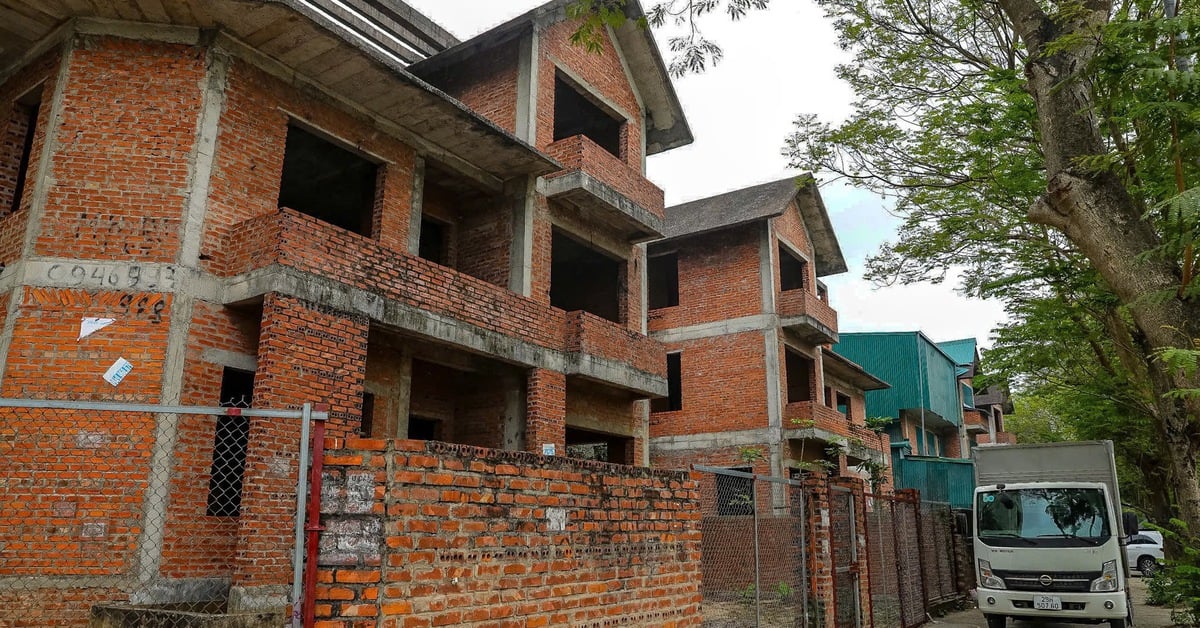

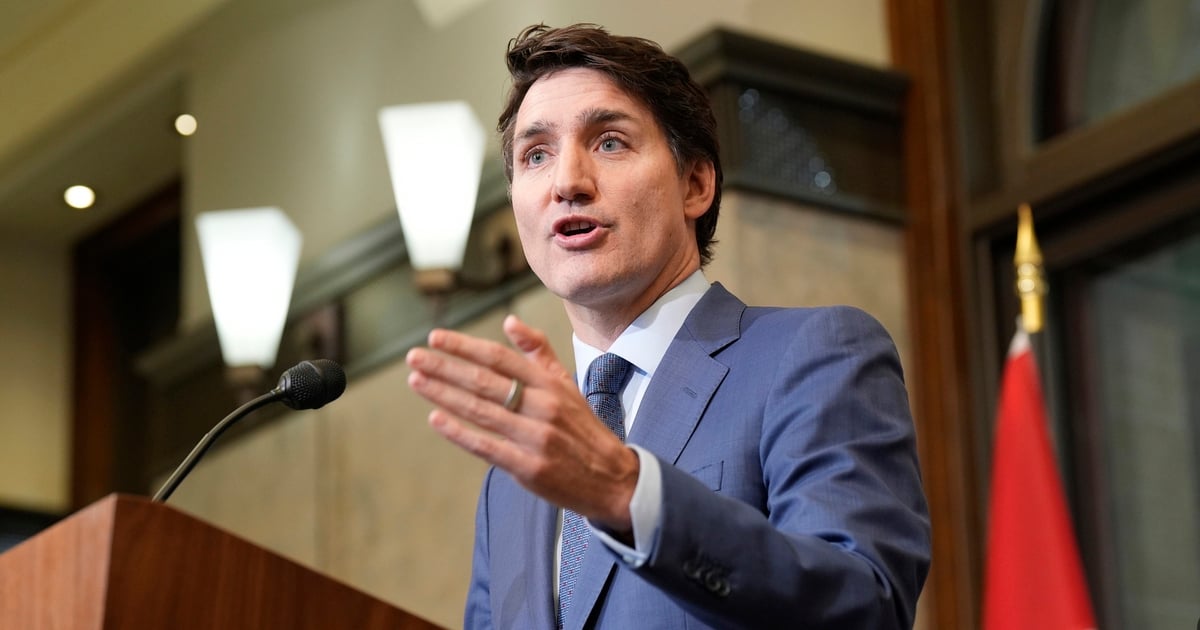

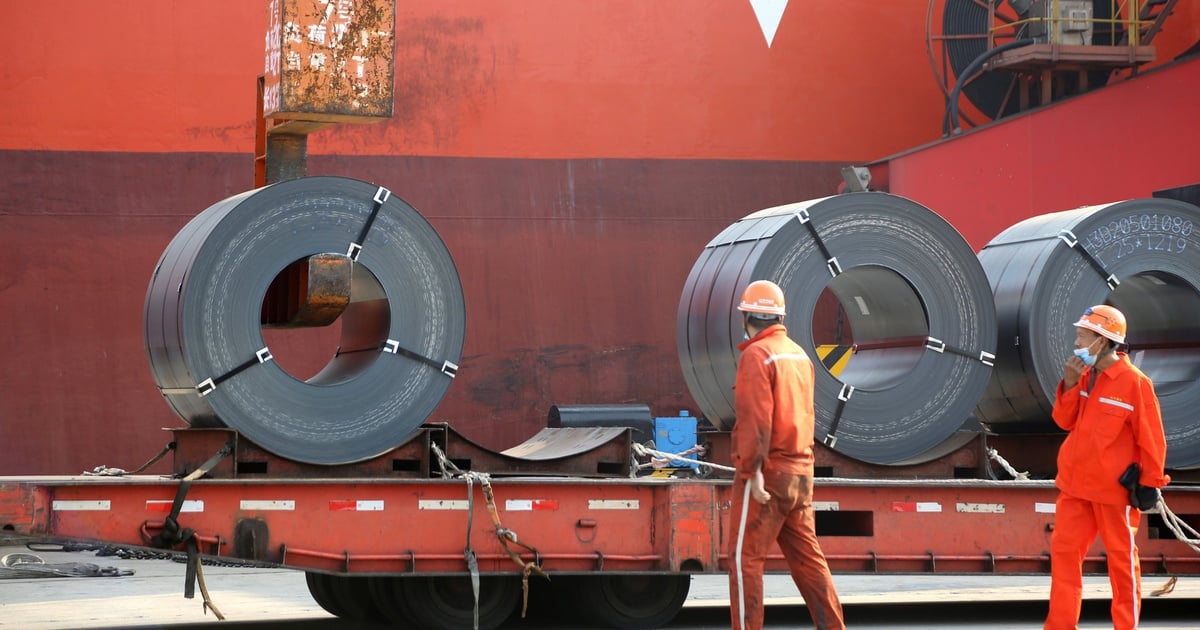

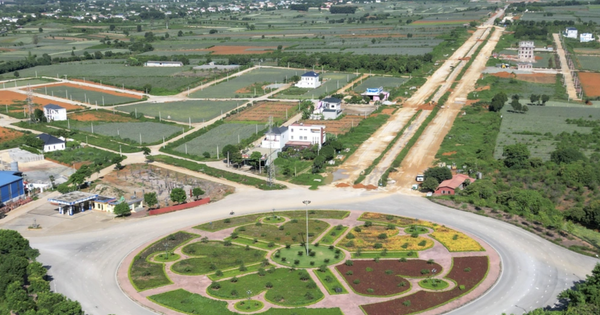



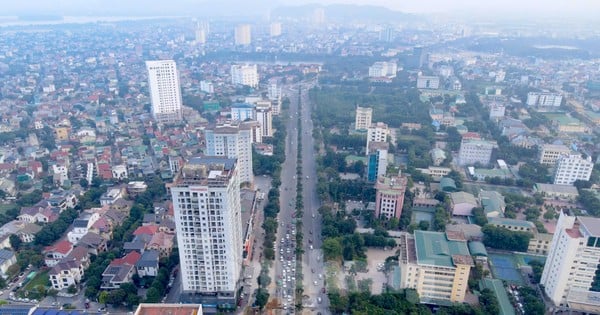
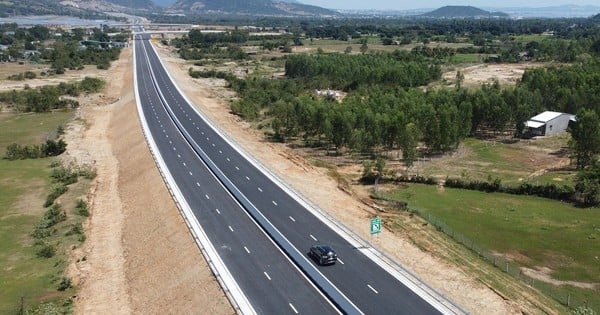







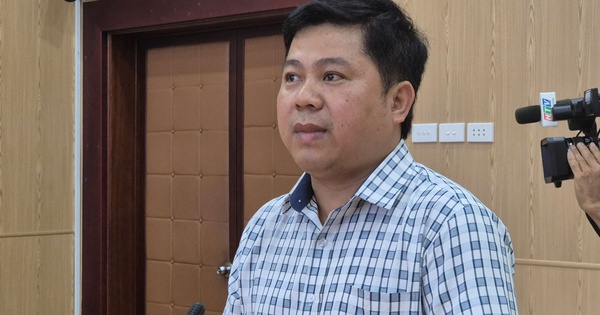
![[Photo] Summary of parade practice in preparation for the April 30th celebration](https://vstatic.vietnam.vn/vietnam/resource/IMAGE/2025/4/11/78cfee0f2cc045b387ff1a4362b5950f)

















































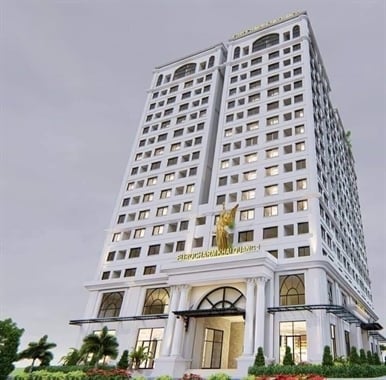











Comment (0)